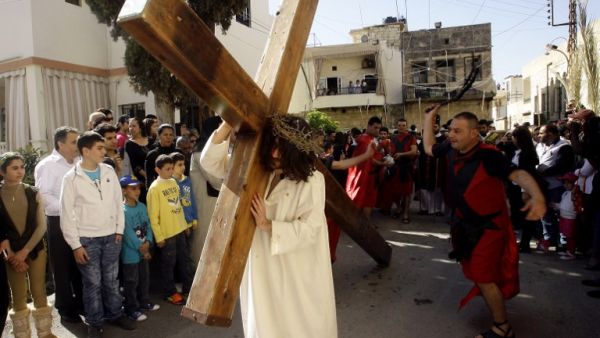Last week, a tour of Lebanon’s Christian villages in the South revealed little consistency in the timing of Easter commemorations.
For example, the midnight mass – a service known as the mass of the resurrection of Jesus Christ – was held around 7 or 8 pm in some villages, even though, according to scriptures, the resurrection was still yet to occur.
The “rush” service, which is supposed to be held between 4 and 6 am on Easter, was also held much earlier in some villages. In short, it would appear that the timings of these services did not coincide with the times prescribed by Christian texts and religious practices.
What is the reason for these variations? Some pointed out that there’s not enough priests to go around. Most often, priests are in charge of neighboring towns’ parishes, so there are compromises when it comes to timing.
When a diocese assigns a priest three or four parishes, he organizes his time in a way that enables him to hold Sunday mass at his original parish throughout the year. But holiday services are supposed to be held at set times, which creates confusion and difficulties when coordinating between different villages.
A resident of one such town recounted how villages compete with each other to reserve their liturgical celebration at set times. “Sometimes it works and sometimes the priest promises us to hold the mass of the next feast at its set time,” the resident said.
When asked about this phenomenon, one clergyman denied that assigning priests to more than one parish is due to a shortage. “It is probably done to economize,” he said.
Does it matter when the Easter service is held? Why do you think there are so few priests around? Share your thoughts with us below.








